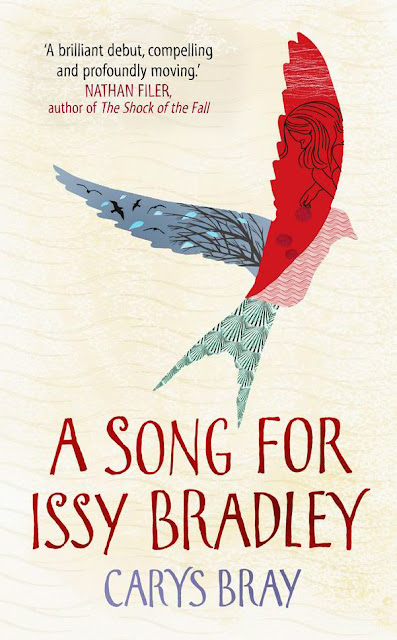The second in a series of articles on the novels shortlisted for the 2015 Desmond Elliott Prize discusses another debut, Claire Fuller's award winning Our Endless Numbered Days. Spoilers as always.
The story of my connection with Our Endless Numbered Days begins in June 2014, eight months before it's UK launch. That month, I received an email inviting me to a job interview, which I aced, accepted the job, and began working. The woman who emailed me was on holiday when I started the position, but two weeks later I met the person who originally vetted my application – Claire Fuller.
Which puts me in a rather unique position, one which I haven't been in before when talking about, well, anything. But, if my literature degree taught me anything, it's that the author doesn't really have much impact on a book. Except the writing part, of course.
Our Endless Numbered Days: title inspired by an obscure band's album (how very Winchester), winner of the 2015 Desmond Elliott Prize, and dramatic, genre-bordering thriller.
Quick plot summary: when Peggy is eight, her father – essentially – abducts her, taking her to an abandoned Hütte in the middle of absolute nowhere, or somewhere in Europe, as far as we can tell.
The novel is told entirely from Peggy's point of view, firstly from her eight year old self, up until she's 17. And for me, this is what I found most gripping.
Firstly, I like to think that Fuller (can I call her Claire? I know her as Claire) Claire chose her protagonist's gender based on more than personal experience. Take a moment to imagine if the abducted child was a boy.
The differences aren't vast at first – male and female eight year olds are quite similar in their physical and behavioural development – but I wonder if the father would even have taken a boy? Boys aren't as vulnerable as girls, or as delicate. With a female protagonist, she can remain under her father's rule no matter what. He will always be physically superior. With a male protagonist, he will eventually grow stronger and become an alpha. No matter the bond, a boy is far more likely to dominate eventually. And, if it was a boy, the ending would be very different.
Secondly, the development of the character would have taken a different turn indeed. Let's not forget, Peggy is in the woods during the most intimate physical development of her life – puberty. As a female reader – who's a practical thinker even in the most fictional of times – I couldn't help but think of questions like, what happens when Peggy gets her first period? Foliage sanitary towels?!
In this sense, readers are a lot closer to her sheer vulnerability and the extent of how feral her father has forced her to be. It's a far more impactful passage to read rather than a sentence about an awkward morning boner.
And finally, let's talk hair. Well, by that I mean enforced standards of beauty in the Western world.
Claire really effectively paints a portrait of the importance of beauty standards through what Peggy has missed out on. When she returns home, choosing clothes is a subject which absolutely baffles her. Peggy doesn't have any idea about beauty or about all these standards for women, because she hasn't learnt them. She hasn't needed to know how to brush her hair to survive, or how to accessorise. They weren't skills which would keep her alive throughout cold winters. In fact, they're entirely unnecessary. But only when she's in the Western world that she's subjected to comments on her appearance. There's a lot of this kind of comment on YA fiction at the moment, just take a look at The Hunger Games. In fact, I'd like to think Peggy and Katniss could be friends.
It's really refreshing to tear into a novel which so breaks the convention of women, especially young women, in literature. And following Peggy's development is more than fascinating, it's a complete breath of fresh air to see her emotional, mental and physical progression in such a unique environment. Despite the novel's self-limited environment, number of characters and subject matter, Peggy's character is so rich and unique, it's no wonder it won the Desmond Elliott Prize.
 |
| My copy looks like this. Yes it's signed. Yes, I went to the book launch. #humblebrag |
Read my opinion of other representations of women in competitor for the prize, Emma Healey's
Elizabeth is Missing.







